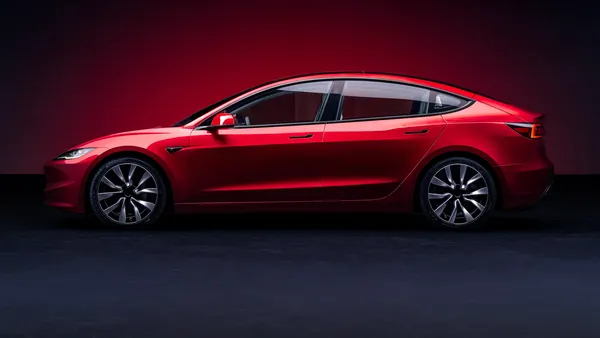Editor's note: This story is part of the WardsAuto digital archive, which may include content that was first published in print, or in different web layouts.
One must admire and respect the German car companies.
Over the past few decades, they relentlessly and effectively established the standard for premium automobiles, from luxury to sport and racing cars. As a car enthusiast, I enjoy their products and are thankful for the way German auto makers pushed the automotive industry forward.
Nothing exemplifies better the evolution of German carmakers than Volkswagen. The company that started with the Beetle now has a broad lineup of vehicles that can satisfy a wide array of buyer demands.
But the Volkswagen Group has had a hard time replicating its global success in the U.S. market. Part of the problem was new models were introduced in the hugely important and profitable U.S. market months or even years after sales were launched in Europe. Some halo cars, such as performance models in the Audi RS line, were kept out of the U.S. altogether, while rivals BMW with its M models and Mercedes with its AMG offshoots were realizing most of their sales and profits here and helping build brand awareness and strength.
But VW’s decisions, while questionable, were not lethal. Then there’s the diesel story.
For decades, German automakers developed extensive expertise around diesel-powered cars. Driven by legislation that favored them over gas engines, including extremely favorable taxation of diesel fuel, the Germans derived a huge portion of their sales and profits in Europe from these vehicles.
In the U.S., the situation was totally different. Diesel fuel generally is more expensive and less available than gasoline and it is taxed at a higher rate. Furthermore, the market perception of diesel vehicles was not favorable in the U.S. The American customer is much more inclined to purchase cars based on new, environmentally conscientious technologies, such as electrified powertrains and even fuel-cell vehicles.
Why did all the German makers try to force the U.S. market to accept and buy diesel cars? This is unclear to me. They spent lots of money to develop diesel engines that could comply with U.S. emissions regulations, and all of them have had only modest commercial success.
Even before VW’s Dieselgate scandal unfolded, one could ask, why try to fit a square peg through a round hole? Money could have been better spent elsewhere than on developing a technology that had limited chances to succeed in the U.S. market.
Now, in the aftermath of the scandal, it is painful to see some of its effects. Audi retired from endurance racing after dominating the sport for many years, ironically with race cars powered by diesel technology. VW unexpectedly has given up on its participation in the World Rally Championship that it won the past four years.
Worse, Volkswagen Group will reduce its workforce to cope with the financial strain of dealing with the fallout from Dieselgate.
What were they thinking? I believe they got carried away by their diesel success in Europe and forgot customers and markets are different. Products need to be developed to satisfy consumer desires, not the other way around.
For now, it seems VW has learned its painful lesson and will invest in new technologies and products that better fit with market demands. Electrified powertrains, connected cars and autonomous driving all are high priorities now. It’s just unfortunate the automaker had to go through an existential crisis to figure that out.
How much progress could have been made if all these efforts and funds had been directed from the very beginning toward technology progress and innovation?
But later is better than never, and I am looking forward to the new wave of products born out of this debacle. See you at a test drive in 2019, when some of these new models will be launched.
Theo Nissim is CEO at Silicon Valley-based software consulting company Gemini Solutions and an avid auto enthusiast.










